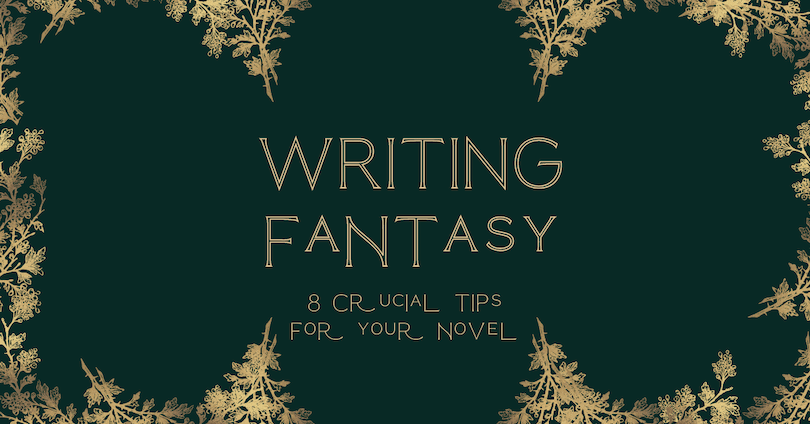 Do you want to be the next JK Rowling and write a smashingly good fantasy novel that will earn almost as many good reviews as it does money?
Do you want to be the next JK Rowling and write a smashingly good fantasy novel that will earn almost as many good reviews as it does money?
Or maybe you want to tap into the creative half of your brain and let off some steam before smoke starts spouting from both ears?
My motivation for writing a fantasy novel came from the unadulterated joy I experienced as a voracious young reader of fantasy novels. In school I would be scolded for reading underneath my desk while the class was supposed to be learning arithmetic. My mother, a reading teacher herself, helped nurture and feed my increasing appetite for new books. I simply could not get enough of the wizards and magical creatures swirling around inside these pages. The time I had spent pouring over these different fantasy novels meant so much to me that I realized I wanted to share it with others.
At 13 I caught the writing bug, and started writing a fantasy novel, Aether Warriors.
After five long years of writing, editing, and revising, I self-published Aether Warriors with Outskirts Press in 2013. It was nowhere near easy, but I had managed to make my dream come true. My book was showcased on Barnes & Noble and Amazon and I started visiting middle schools around Connecticut as a guest speaker.
I learned a few crucial secrets along the way, secrets I’d like to share with you. If aspiring authors follow these steps, they’ll be sure to improve their writing skills.
1. Don’t Read. Devour.

That’s right. Before you lift a pen or lay a finger on that keyboard you need to do some reading. The best way for any writer to improve his or her craft is to read, so start tearing your way through those books. Even if you consider yourself well read, there is simply too much fantastic material out there, and every year more is being published.
Since this cornucopia of literature would take more than one lifetime to sort through, writers should focus on materials that inspire their writing. What piques your interest? If your interest borders on the dystopian, maybe try a best seller in that genre such as the Hunger Games or the Maze Runner series.
If you appreciate traditional fantasy, make sure you are schooled in the essentials such as The Chronicles of Narnia or Lord of the Rings.
A Google search of successful writers in your genre always provides plenty of new reading material. One resource you can use is BestFantasyBooks.com, which creates lists based on votes from users. A great place to start would be their all-time top 25 list.
2. Research Potential Book Markets
I know you want to write and tell an original story, and that you didn’t come here to do some boring fact checking. This is always the most difficult part for me too.
At the end of the day writing a fantasy novel and selling it is still a business, and if you want to be successful, you need to see what the currently trending authors are doing right.
Pay attention to what genres are selling, and what it is about each series that makes it so successful. Do fans fall in love with the characters or the complex plot twists? Although it is important to produce your own unique ideas, poking around success stories can always offer inspiration or give you an idea of what the market is getting excited about.
3. Try a Fresh Perspective
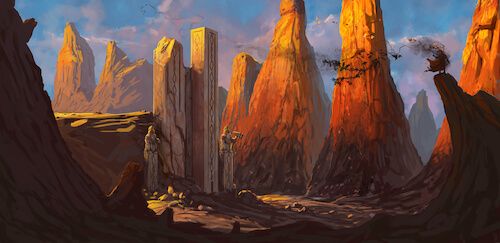
The way your story is told has a huge impact on how it unfolds in the mind of the reader. First of all you need to decide from what viewpoint the reader will experience the story. Will we be seeing through the eyes of a single character, or multiple? Will all of these characters be human? Will it be written in first or third person (since second-person is seldom used)?
A specific type of point of view can be chosen to allow the writer to intentionally leave bits of information out, in order to increase suspense and surprise the reader later on. Deciding on which viewpoint to use can impact how you choose to progress your plot, so it is important to make this choice early.
4. Map Out the Lineage of your Series
Will this novel be a standalone? In this case the world you create and the characters in it must be introduced and developed much more quickly in order to allow room for plot progression. If you decide on fashioning a series, more planning is involved.How will the passage of time affect each book? Will it be a trilogy or a tetralogy?
Since the survival of a series is determined by the number fans drawn to its first book, you will want to hook as many readers with your opening novel. Be sure to introduce your characters and the concepts/ struggles that they may face in your fantasy world as methodically as possible. Don’t forget to save some room for some nail-biting action and maybe even a cliffhanger ending to ensure fans have no choice but to buy the next book.
5. Paint Your Characters
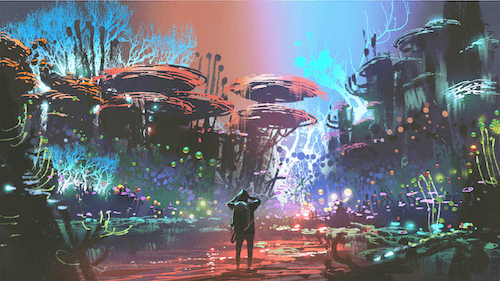
You don’t need a canvas or palette for this next step, only a pen with some ink. Describe each one of your characters with as many words as you can think of on a piece of paper. As an author you must have a very vivid picture of what you are creating for the reader.
If you are artistically inclined, sketching out pictures of your characters can be a useful tool. For the more analytical of writers I have found Excel to be an extremely handy method of organizing characters. You can map out physical traits, where their loyalty falls in your world, whatever special abilities they may possess, or any other aspects important to the story you are telling.
When designing characters, it is imperative to consider is how they may change throughout your book. Character development is an excellent way to surprise or keep readers guessing. Perhaps a young boy is learning to become a hero, or a seemingly loyal friend shows his true colors as he switches sides, or maybe even an unstable character loses their grip on reality. By focusing on the starting point of each character you can guide their paths as you develop your novel.
6. Build Your Setting
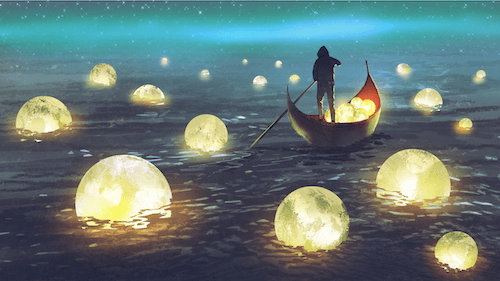
The world you create is the place your readers should be transported to every time they open your book. This means vivid descriptions to make the experience as realistic as possible for the reader. Their introduction to this world should not just be physical, however — think about all of the differences that an entire new world would contain.
Here are some possible variations to consider when building your world:
- What is the infrastructure of your world like?
- How do your characters communicate or travel?
- Is this world full of tranquility or constantly warring factions?
- Are there different cultures at play here?
- How do they interact and function differently than we do in ours?
There are a number of nuances that are easy to overlook when creating a new world, so be careful to cover as many plot holes as you can conceive.
7. Don’t Beat it to Death
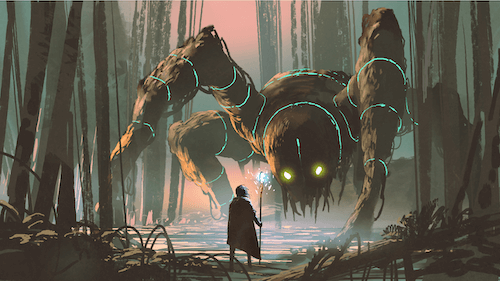
So you hit your stride and everything is working in perfect harmony. Relatable characters, gripping plot points, and an immersive setting. You fell so madly in love with your creation that you decide to pump out one extra book, then another, then one more.
Here’s a warning: Don’t muddy your original idea by trying to keep it alive for too long.
Author’s have fell victim to this affliction before, such as with the Magic Tree House series, which was painfully stretched to over 50 books. With an idea as inventive as a treehouse that has the ability to transport its inhabitants throughout time, it is easy to imagine getting lost in all the different scenarios the main characters could wind up in.
However, it’s important to keep concepts fresh, or eventually your readers will get tired of the same show with a different background. It’s important to never fear cutting the umbilical cord and moving on to your next series.
8. It’s a Process, Not a Checklist
The whole point of writing a fantasy novel is to feed on creative energy, so never be afraid to explore something new. Writing a novel is not like taking a Scantron test; there are no right or wrong answers.
Although researching what other authors have done right can help, the reason these books were successful is because they were innovative. Maybe they invented a fresh take on an old story, like in the bestseller Lightning Thief.
So dare to be different, to be bold, to never hold yourself back. Who knows, you might come up with a whole new genre of fantasy …
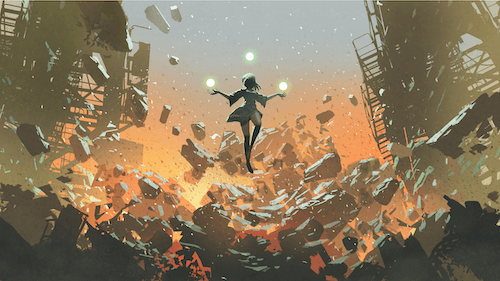
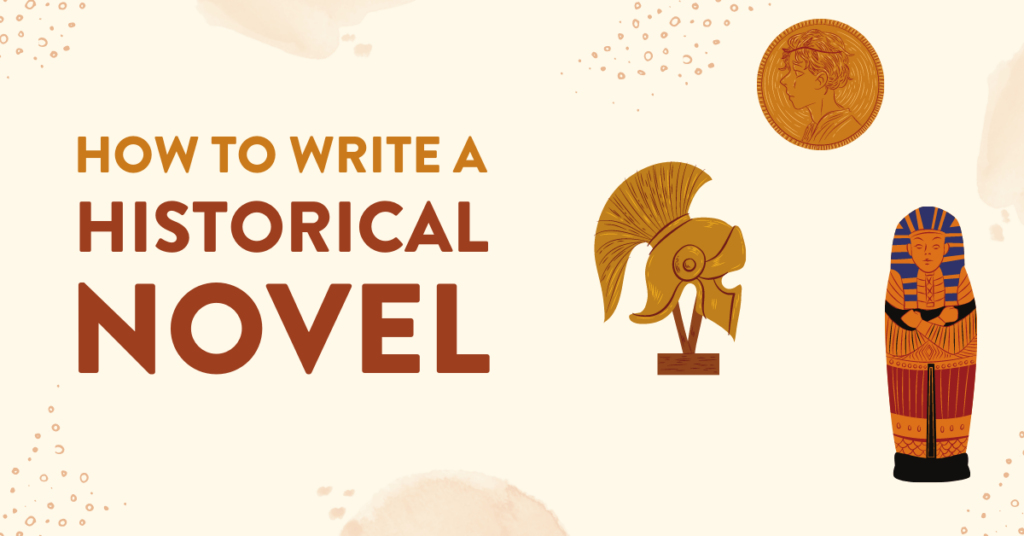
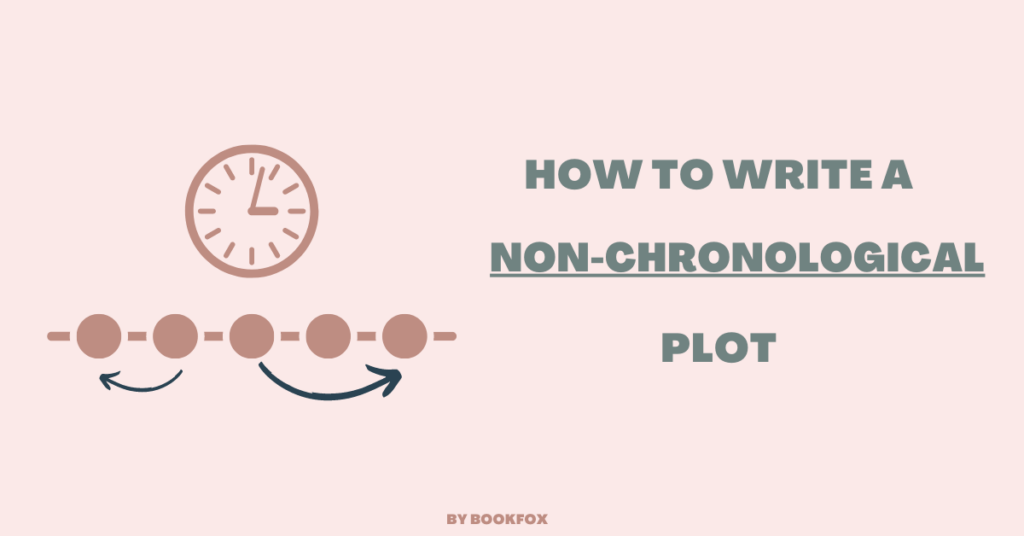

30 comments
If you’re writing with the soul intent to make money, then you have the wrong mindset.
Bless you, you’re so right.
Thank you for this. Every word you say I find truth in and no matter how much I fail you encourage me to continue.
yes that is very true
I don’t read a lot, I often watch anime or play video games instead, because the kind of fantasy I want to write is scarce in written form.
What I want to write is “battle shonen” fantasy series with fighting in every chapter (as basically the characters exist to fight, rather than fighting serving as a problem-solving mechanic), Pokémon-style collectible monsters, video game mechanics such as HP, respawning after death and warp points as technologies that are completely established and ordinary in-universe, and people treat actual war as if it was a video game because to them it is.
In other words, I’m trying to write a fantasy novel series that is a tribute to anime and video games, and aimed at the fans of those things, and the kind of fantasy I want to tell is typically told in anime or video game form, very rarely as a book. Hence why I am violating tip number 1.
It’s not JUST about making money, but making money means you’ve been read. This is the only mindset you have to keep really clear.
*Sole. We’re writing on a book tips website here.
Thank you for the tips!
I have, to be honest, lost count of the times I have tried to write a fantasy, but what I end up with is building a character which has something or other borrowed from many of the books I’ve read till date.
Recently I started blog and I was thinking of writing a short story. Will work on it more dedicatedly now and considering all the points above!:)
I love to write. I am writing a fantasy book right now, and I might take time to read more and use lots of these tips. This was SO useful.
Thanks for these tips. I’m actually in the process of trying to come up with some good ideas myself. Your first tip seems to be holding true for me… I’ve been diving into every fantasy genre book I can.
This is a great list. I stumbled across this article as I am looking for tips to make my current series as good as possible before I finish it.
Great ideas. Im just starting out and I start writing and adding short sentences when they come to me, just waiting for the next piece of inspiration to put it all together. Follow me on Instagram @Martinbankspfficial for updates and see how im getting along with my 4 book set and enjoy it coming together with me.
i always felt with my soul what type of fantasy i dreamet thanks for tips
Im only a tween but i love to write and have read every book you have mentioned and i suggest where the red fern grows along with the i am number four series
both great, and if you liked “Where the Red Fern Grows”, I suggest “The Bridge to Terabithia”
I don’t know if this means anything to anyone but I am a wrong writer looking to start back up writing.. I honestly don’t exactly know what to write yet. I’m more into creating the world myself, The creatures in it, and the characters. I prefer to write of magic, sorcerers, beast man, dragons… I love to bring a love of fantasy to life with all of it. I’ve always ran into writers block trying before.. Perhaps a perspective other than my own would do me some good? Anyone got any ideas?
hello! I’m not a professional when it comes to this stuff, but some tips to get out of writers block are pretty simple. you could listen to music, maybe. I like to search up the meanings of the lyrics, and it gives me ideas of main topics for the stories I want to write. another tip is to go and read other people’s stories! surprise, surprise. usually reading the beginnings and endings of a classic fanfiction or a book you have hidden away somewhere may spark your motivation. I usually get tons of ideas from both of those tips. usually I never really know what to write afterwards, so it’s always good to mess around with your writing sometimes. who knows, maybe the new start may be your favorite so far!
thanks for your wonderful wisdoms….
well im in a idea of writing a fantasy novel called IN YOUR
DREAMS..its a fantasy as well as motivational
.my most inspired book is THE LAST OF THE FIREDRAKES which made a crush on Rafe without seeing….
i bet u should read it….
i like that book because the author has used mesmerizing words for facial expressions
Amazing tips gonna surf round for more
So, thanks for the advice! I have and idea for a book(and I’m a teen), I feel like the title should be “Alvernia” or “The Alvernia Forest”. I’m not sure which one. The best magical creatures stay there, or get a note to stay there. The humans(normal us tk tk) never found the place. I am heavily inspired by “Harry Potter”, and quarter inspired by “Warriors”(by Erin Hunter). My teacher is helping me! And my teacher already published a book in Amazon(sue me for not knowing the title!).
Thank you for this! I’m 12 years old and i’m planning to write a story. I don’t expect it to be published , but i want it to be good and this helped a lot!
Please put some tips for kids as this generation of kids r also very creative and I think we should help them.
Thanks for the tips! I loved the part where you said about not stretching the series and moving on to something else. This actually happened to me before. But the good thing was that whenever I think of writing a fantasy novel series, I think of all the possibilities, what characters will make it to the end or not, and whether to shift the protagonist to the deuteragonist a bit after a number of books and stuff like that. But you missed one part. You never said anything about PATIENCE. Patience is a great milestone if you are writing what is going to be your best bestseller series. In fact, I am writing a series called ‘The Berkelian Chronicles’ and a year ago I had really dropped patience. It was so disastrous that I ended up writing the last book of the series first, and this year I had to start right from the scratch, even changing the main title and removing a few unnecessary characters. I am just an 11-year old boy and I would like to tell the other very young writers about this. I sincerely thank you.
Thank you for this! I’m Ankit 26 years old and i’m planning to write a story. I don’t expect it to be published , but i want it to be good and this helped a lot!
I can’t simply go without leaving a comment. This post is a great read.
Excellent tips and advice!
On the off chance that you need to be an author, you should complete two things over all others: read a lot and compose a lot.
Hope this will help.
Thanks
Joab
Loved all your tips! Here is an exercise in exploratory writing. First guideline: Do not utilize semicolons. Everything they do is show you’ve been to school.
Ha ha! Nice one — Vonnegut made that same point, I believe.
This post was truly worthwhile to read. I wanted to say thank you for the key points you have pointed out as they are enlightening.
Thank you